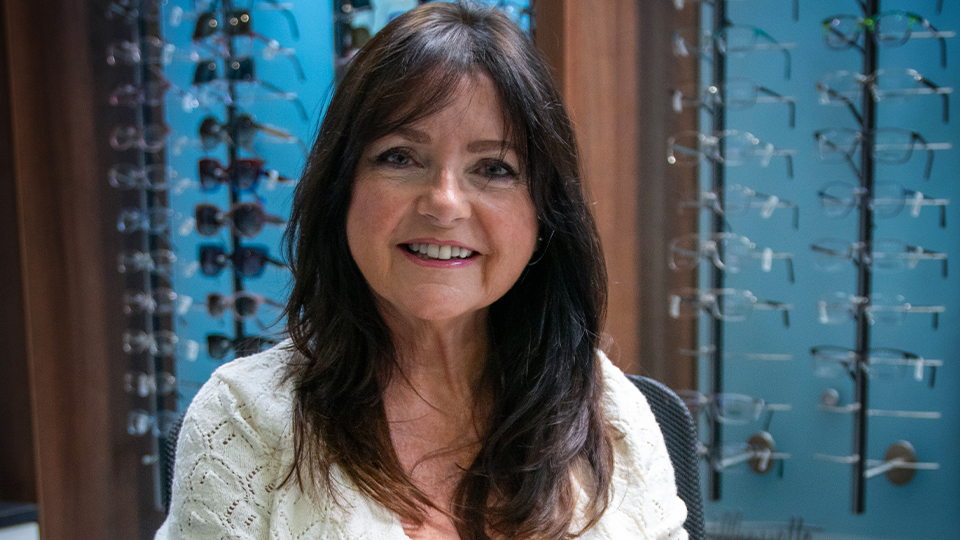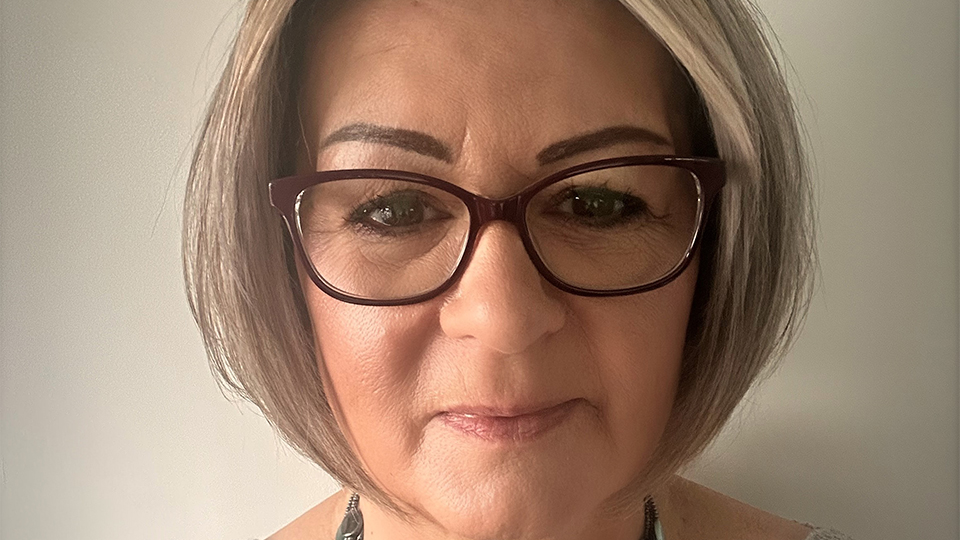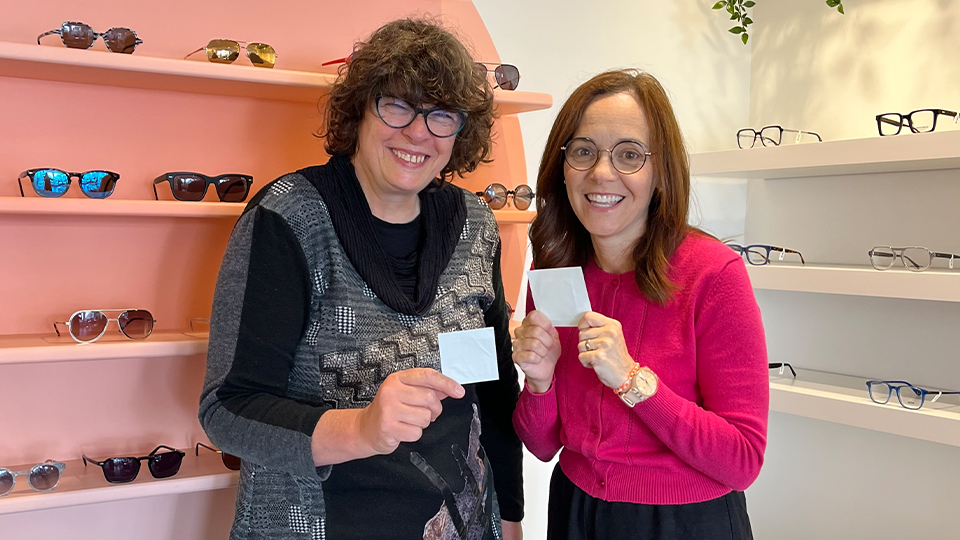- OT
- Our journal: past editions
- The Prevention and policy edition
- Navigating menopause in the workplace
In focus
Navigating menopause in the workplace
OT puts a spotlight on how menopause is affecting women working in optics, and how employers can step up to support their staff

03 October 2025
When Kim Whittet came in for her GP appointment, she knew that something had to change.
After three decades in optics, working her way from optical assistant to practice manager to regional manager, Whittet was reaching the height of her career.
She was the safe pair of hands who people naturally gravitated to with their problems – someone who was calm and kind under pressure.
Except that now, after months of broken sleep, hot flushes and cystitis, Whittet was beginning to question if she could solve her own problems let alone other people’s.
At work, the painstaking progress she made getting to grips with new software seemingly evaporated overnight. At home, her husband was puzzled and concerned after his normally stoic wife started crying while struggling to open a can.
Sitting across from her GP, Whittet, 51, struggled to explain the series of mysterious symptoms that had come like an unwelcome visitor into her life.
“I just broke down and I said, ‘I'm not quite myself. I don’t know what's happening to me’,” she said.
A series of questions and blood tests confirmed that Whittet was experiencing menopause.

Around 13 million women in the UK, or around a third of the female population, are going through menopause or perimenopause.
Whittet told OT that it was a relief to know that she was not alone.
“When you start comparing notes with your friends and other people around your age, it is so enlightening. Everyone is going through similar things,” Whittet said.
NHS data shows that women normally begin experiencing menopause between the ages of 45 and 55, with 51 the average age of onset in the UK.
A Department of Work and Pensions literature review highlighted that women over 50 make up a significant and growing proportion of the labour market.
It is estimated that the financial cost to the UK economy of women’s experiences of menopause in the workplace is £1.5 billion due to unemployment.
There is a further cost of £191 million due to absenteeism and £22.4 million due to presenteeism.
Analysis of Reproductive Health Services data reveals that women with severe menopause symptoms take an average of seven days leave each year due to their menopause symptoms.
When you start comparing notes with your friends and other people around your age, it is so enlightening. Everyone is going through similar things
Menopause support within optics
The proportion of women working within optics has steadily increased since the beginning of the millennium.
When the first Opticians Register was published in 1960, only 16% of dispensing opticians and 5% of optometrists were female.
The latest General Optical Council data shows that 62% of optometrists and 68% of dispensing opticians are female.
This demographic shift has been reflected in the support provided to employees by some of the large employers within optics.
In 2022, Boots Opticians introduced a policy enabling employees to claim back the cost of hormone replacement therapy (HRT) prescriptions.
In August 2025, Vision Express announced that menopause awareness training was being rolled out to all eye care professionals across the group to help staff better support patients experiencing menopause.

Lou Furby is the co-founder of MenoTalk – a Specsavers colleague support network that was rolled out in 2021.
The group’s inception followed a “lightbulb moment” where Furby realised that her constellation of symptoms was not a rare illness but an experience that women shared across the UK.
“I wasn’t going around the twist. I am not the only person in the world, and certainly not the Specsavers world, that is going through this,” she said.
MenoTalk provides support, guidance and advice for anyone going through menopause and perimenopause – as well as their colleagues, family and friends.
A key focus in the first year of the group’s operation was supporting a workplace culture where people feel comfortable discussing menopause at work.
“If I go back to my mum’s experience of menopause, she didn’t even call it menopause. She called it The Change,” Furby said.
“I think with more coverage in the media people are less fearful than they used to be, but there can still be stigma associated with it,” she said.
AOP menopause resources
Furby recalls the first video call where she mentioned her menopause symptoms to a group of eight people of different genders, ages and backgrounds.
“I remember saying, ‘I’m so sorry. I’ve got meno-brain today. My menopause brain doesn’t seem to be processing things’,” she said.
“Half of the group looked down or away, but two or three people smiled in acknowledgement and understanding,” Furby shared.
Fast-forward four years, and Furby now sits on calls where people will tell her about their own meno-brain moments.
“That is exactly what we wanted to achieve – menopause isn’t a dirty word. It is not something to be embarrassed about,” she said.
I didn’t think I would ever feel like myself again. I lost my identity
The menopause microclimate
Whittet, who was not suitable for HRT because of a family history of breast cancer, has used clonidine to manage her menopause symptoms since her initial GP appointment 12 years ago.
Alongside medical intervention, Whittet has found maintaining a sense of humour to be helpful while navigating menopause.
When she experiences a hot flush, she will tell colleagues that she is experiencing a “tropical moment.”
“Even when it is the middle of winter, I have my very own tropical summer,” Whittet told OT.
“When I am in team meetings, I have all of my fans and paraphernalia out on the table,” she said.
Whittet’s transparency about her experience of menopause means that colleagues feel comfortable coming to her for guidance.
She has provided electric fan recommendations to a colleague who was looking to support his wife, coaching him on how to navigate the conversation, and fielded questions from a colleague who was beginning to experience symptoms.
“She is so lovely and normally quite private, so I was really happy that she asked me,” Whittet said.
Whittet, who is a practice buddy for Hakim Group, highlighted that empathy and flexibility are key when it comes to providing staff with menopause support.
“You need to give people a safe space to open up and build that trust,” she said.
On a personal level, Whittet finds that taking time out to relax and recharge is helpful in navigating her symptoms.
“You have to be kind to yourself. I was someone who was used to going a hundred miles an hour, but you can’t do that anymore when your body is crying out for you to look after it,” she said.
Reflecting on how colleagues can support someone experiencing menopause, Whittet told OT that it is always helpful to consider the world from someone else’s perspective.
For example, a colleague who seems to be more irritable than normal may be suffering from sleep deprivation as a result of night sweats.
“Cut people some slack because you never know what someone is going through – whether it is related to menopause or something else,” Whittet said.
Five steps to a menopause-friendly workplace
- Encourage an open culture where people can talk about menopause
- Educate and train line managers
- Manage health and absence in a fair and flexible way
- Develop a supportive framework
- Consider flexible working where possible.
Source: Menopause in the workplace (CIPD, 2023)
A loss of identity
For Furby, who began experiencing menopause symptoms in her early 40s, the tipping point for seeking treatment came when she lost her temper with her teenage stepson for not loading the dishwasher correctly.
“I remember the expression on his face was just utter shock and confusion. That was the trigger point for me going to the doctors for the first time,” she recalled.
Alongside these uncharacteristic mood swings, Furby had noticed a range of physical symptoms – such as heavy periods, migraines and brain fog.
Furby told OT that her symptoms affected both her personal and working life.
“I’ve always done a job where I am very organised and structured, but it was becoming obvious to others that I was off my game,” she said.
Furby feared that she may lose her job or stop being able to do parts of the role that she enjoyed.
“I didn’t think I would ever feel like myself again. I lost my identity,” Furby said.
By establishing MenoTalk, Furby regained a sense of purpose in helping women who were going through a similar experience.
“Support is absolutely key to this, because women can feel so isolated and fearful,” she said.
Furby, who takes HRT, told OT that there can be stigma around taking medication to address menopause symptoms.
“If you were in any other situation where aspects of your physical health could be redressed with medication, you wouldn't question it,” she highlighted.
“Hormones are absolutely no different, and they have such a huge impact on how your body works. If they are out of kilter, it makes such a difference,” Furby emphasised.
She observed that every woman’s experience of menopause is different – with some women going through a diverse range of symptoms and others reporting very few.
“Some women sail through this without any challenges,” Furby noted.
Furby highlighted that many women are reaching the peak of their career when they experience menopause.
“These women have worked really, really hard to be in the position they are in, but they are taking on those leadership roles at a time when they are often at their most vulnerable,” she said.
“Added to that, is the fact that many of these women will have teenagers at home and ageing parents to look after. It is a lot for a woman of this age to go through,” Furby emphasised.

Mutual support
Optometrist, Dr Valarie Jerome, told OT that menopause is a common topic of conversation within her all-female practice team.
“Someone might say ‘Did you notice how grouchy I was yesterday? When I got home, I realised I had forgotten to take my patch’,” Jerome shared.
As well as sharing the trials and tribulations of fluctuating hormone levels, staff at Valarie Jerome Optometrists in Newbury have become adept at knowing when a hot drink or a lunchbreak is needed.
“They take care of me, and I take care of them,” Jerome said.
Using an AOP template available online, Jerome’s practice has introduced a menopause policy that staff of all demographics read and sign as part of their induction.
According to the Chartered Institute of Personnel and Development, around one in four UK workplaces have a menopause policy.
Jerome shared that as well as enhancing awareness of the support that is available, the menopause policy sends a signal to staff.
“It shows that we are taking this seriously. This is not just hot flushes, or about having your period or not having your period,” she said.
“These symptoms can really effect someone’s quality of life,” Jerome added.
Jerome, who is experiencing perimenopause, highlighted that there can be a tendency among optometrists to disregard their own needs in order to look after patients.
“We’ve got to have our cups full in order to deliver the best care possible. Every patient I see needs and deserves 100% of me every time they sit in that chair,” she said.
Jerome compares the experience of perimenopause to a hacker entering her brain and tampering with the wiring.
She remembers a pit forming in her stomach when she had to write ‘blood in the anterior chamber’ after forgetting the word ‘hyphema.’
Jerome told OT that she was previously someone who would multitask.
“Perimenopause comes into your life and says, ‘You’re not doing that anymore. If you try to spin too many plates, you will drop them’,” she said.
“In a way, it teaches you to savour the moment, and to look after yourself as much as you are looking after other people,” Jerome reflected.
Menopause in the UK
13
million women in the UK are experiencing menopause or perimenopause
41%
of medical schools do not have mandatory menopause training within their curriculum
53%
of women between the ages of 40 and 60 can recall a time they have missed work due to menopause symptoms
17%
of women between the ages of 40 and 60 have considered leaving work due to a lack of menopause support
23%
of women reporting menopause symptoms are given antidepressants rather than HRT – going against NICE guidelines
- Explore more topics
- Health and wellbeing
- Business
- Employment advice
- Professional conduct
- Feature


Comments (0)
You must be logged in to join the discussion. Log in